Rise of a Black Queen: Jodie Turner-Smith’s ‘Anne Boleyn’ forces us to rethink our expectations
For some, the series could be seen as destroying the last safe space for those nostalgic of a certain kind of past. I, for one, welcome that opening, writes Olivette Otele

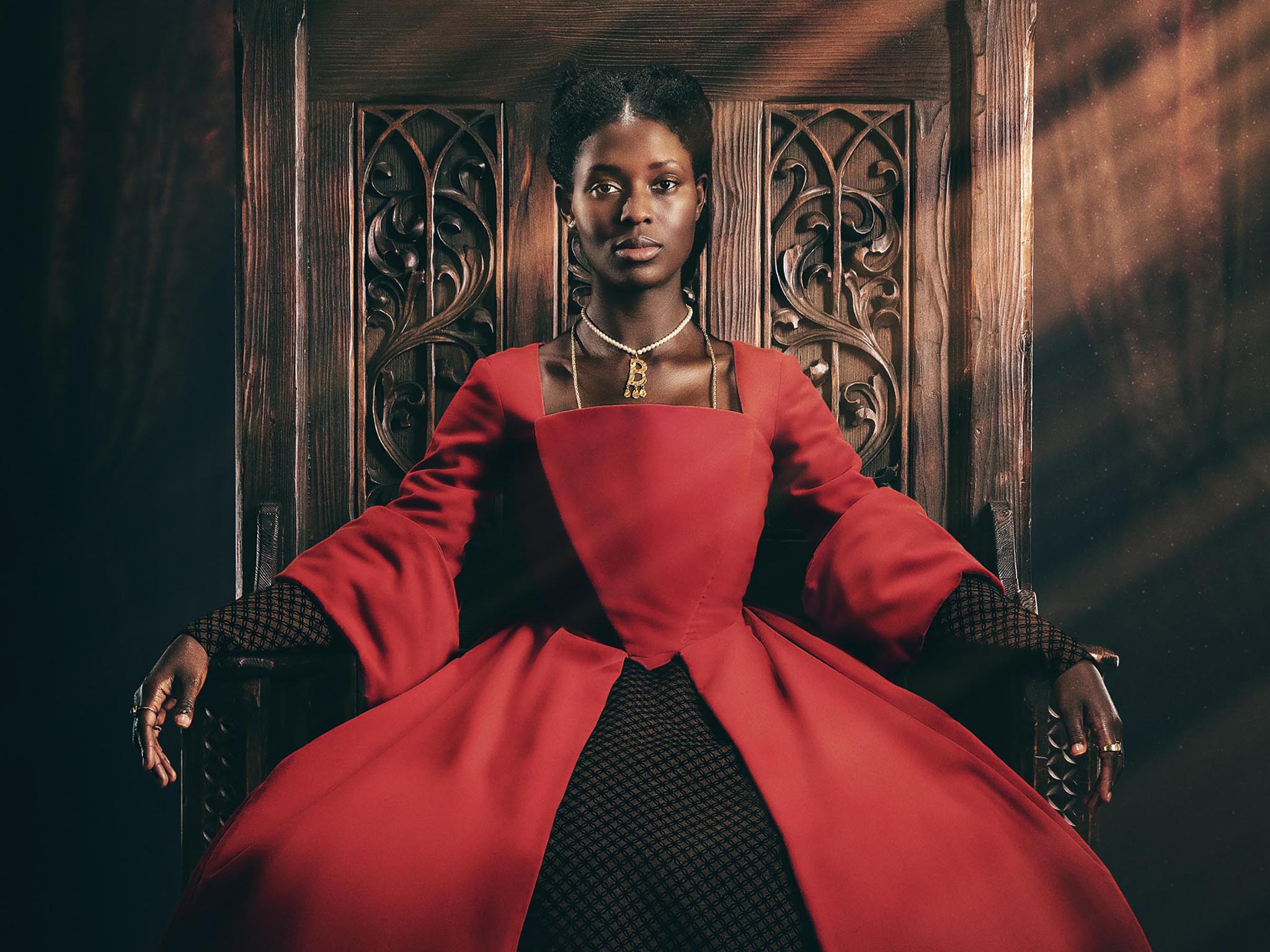
When I was invited to view the new Anne Boleyn series before it was aired on Channel 5, I was of course delighted to see a new period drama whose lead actor is the beautiful and talented Jodie Turner-Smith. I was about to see a stunning dark-skinned woman portraying one of England’s famous queens in a British period drama. The ridiculous anxiety and excitement I felt was abnormal and yet palpable. As a historian of colonisation, I was interested in seeing how the question would be tackled in the series. I was acutely aware of the lack of interest period dramas have displayed in connecting colonial history with Tudor history. I was also interested, among other things, in finding out how early colonial racialisation would be depicted in Tudor court.
Beyond the admiration I have for Turner-Smith, I wanted to see how she would convey prejudice or early forms of racism in the series. The tone had to be right. As a black woman who has seen her share of prejudiced attitude, would she be able to take the audience with her when conveying what it feels like to be on the receiving end of racial prejudice? This was an opportunity that seldom presents itself for black women in films. The question of casting is indeed an important one when it comes to black entertainers and the way they are characterised or how they are rarely given the opportunity to shine. While racism remained important to understanding contemporary debates about our fascination for Tudor times, the series took me on a different journey.
Racism in the film industry, in particular how people of non-European descent have been depicted in Hollywood, has been the subject of debates for over a century. In 1915, the National Association for the Advancement of Coloured People (NAACP) called for series of protests in several cities against the movie The Birth of a Nation. The group challenged Hollywood’s long and detrimental tradition or portraying African American stereotypes. In addition, the NAACP raised the fact that the film industry was denying African American actors the opportunity to access employment by using white actors in blackface.
In the decades that followed, film industries around the world made some adjustments. Bollywood became a billion-pound industry while Nollywood counts millions of supporters across Africa and the diaspora. As the number of African American film directors increased in the US, so did opportunities for people of African descent to play lead roles in award winning movies.
I initially struggled to understand why anyone would want to portray a Queen whose daughter, Queen Elizabeth I, invested in the first English slaving voyages
Adjacent to that discussion was the debate about the breadth of roles all actors in the global north irrespective of their racial backgrounds should be allowed to play. Would a national and international audience be comfortable with a black actor portraying a character who has been up to that point played by white actors? The answer to that question seems obvious. In a fair world, every actor should be allowed to choose and play any character. However, given the historical imbalance and lack of diversity in the film industry in the US, Britain and the rest of Europe, and as debates about cultural appropriation of minority groups’ histories become central to addressing inequalities, providing spaces for various roles to be played by people of non-European descent signalled a timid but noticeable step towards some form of equity in the film industry.
Another train of thought needs to be considered. If we turn the question of cultural appropriation around and recognise that there is indeed a portion of filmgoers in the global north who strongly believe that minority people are going to allegedly take over, and refuse the idea of a culturally diverse society, then it is likely that those filmgoers will view the series as an attack on their history and identity. We all remember the reactions to the suggestions that British actor Idris Elba could play James Bond or the uproar when he played Heimdall in the blockbuster Thor.

Other cinema lovers may simply focus on Anne Boleyn’s heritage as the only grounds for discontent. Given the divisive nature of current debates over the alleged danger of rewriting of British history, should a black actor have been considered to portray a queen in what is one of Britain’s most successful exports: a period drama? Shonda Rhimes’ recent highly successful but also contested series Bridgerton answered the question. The British, and indeed global, audience are ready to see more black actors portraying the British aristocrats in Regency England. However, are they ready to see Jodie Turner-Smith play Queen Anne Boleyn? My answer to these questions as a historian of enslavement and as a woman of African descent is threefold.
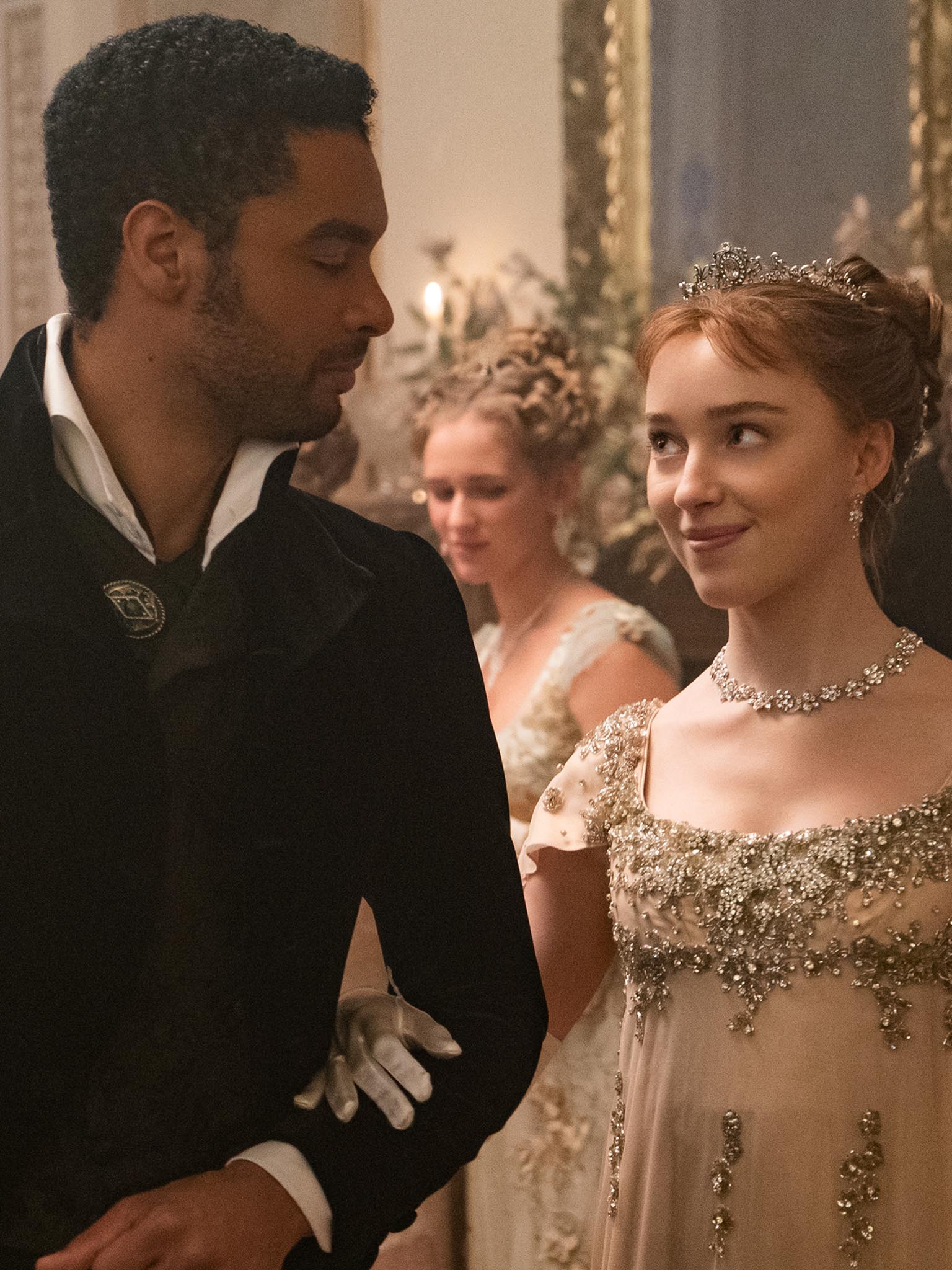
Firstly, as much as I welcomed the progress made in terms of opportunities for many actors and more specially black female actors, who have often been at the bottom of the film industry ladder, I initially struggled to understand why anyone would want to portray a queen whose daughter, Queen Elizabeth I, invested in the first English slaving voyages, thus opening the door to the transportation and misery of millions of African captives. Yet, I also found the idea intriguing, especially when I was told that Turner-Smith would take up the role. Dual heritage actors have been the preferred choice for many directors when it comes to roles that portray people of African descent. To imagine Turner-Smith sitting in court in 16th-century English monarch’s gowns surrounded by a cast of white subjects was a provocation I wanted to see.
The first surprise was about the time frame. I was expecting to see either a story that focused on the love affair between King Henry VIII and his second wife, or to at least witness a short-lived powerful reign with decadent feasts, court intrigues and romances. Instead, we are presented with the last months of Queen Anne’s life. From the very first images, I was transfixed by Turner-Smith’s mastery of the silences and by the way she conveyed conflicting emotions through glances. She is as one would expect any actor playing a monarch to be: domineering, aloof in public and accessible if not fragile in private. Private and public spheres, however, merge in this portrayal of Queen Anne. We are thrown into her intimate spaces in a way that allows us to learn to read her public interactions. She is not safe even in those private spaces and that set the tone for our reading of her public dialogues and reactions in ways that set the audience’s nerves on the edge. The queen’s motives emerge slowly as the complexity of the character’s predicaments unravel.
Mastery of the political situation within and outside the court was essential to these women and any mistake could lead to death for themselves and their families
I was riveted by the lack of reference to slavery and the refusal to attempt to explain why the queen was not the expected English rose. We know from historical research and from several portraits that Anne Boleyn was born into English nobility, which seems to have little links with people of African descent, even if we do know better than to bellow the existence of any alleged racial purity. As far as the enslavement of African captives was concerned, we also know that by 1536, the year she died, the colonial slave trade had already been an integral part of Spain’s agenda and investments. England’s attempt at engaging with that commerce in human beings became effective three decades later. Yet, no mention is made to that aspect and no explanation is provided as to why Anne is black and the court and her immediate companions are of dual heritage. If we pause and think for a moment, we realise that the series forces us to focus on the tragic story of a woman and the silence around the colour of her skin does forces us to rethink our expectations about racial representations.
Historically, there have indeed been people of African descent at the highest echelons in European political and social circles since Roman times, as I described in my book African Europeans: An Untold History. So, unsurprisingly, some of them could have been present in European courts. Entranced as I was by Turner-Smith’s performance, I started to wonder how the course of history would have been changed if Queen Anne had indeed been black and if the dual heritage child who appears briefly in the series, and who later became known as Queen Elizabeth I, would have had qualms about trading in African captives.
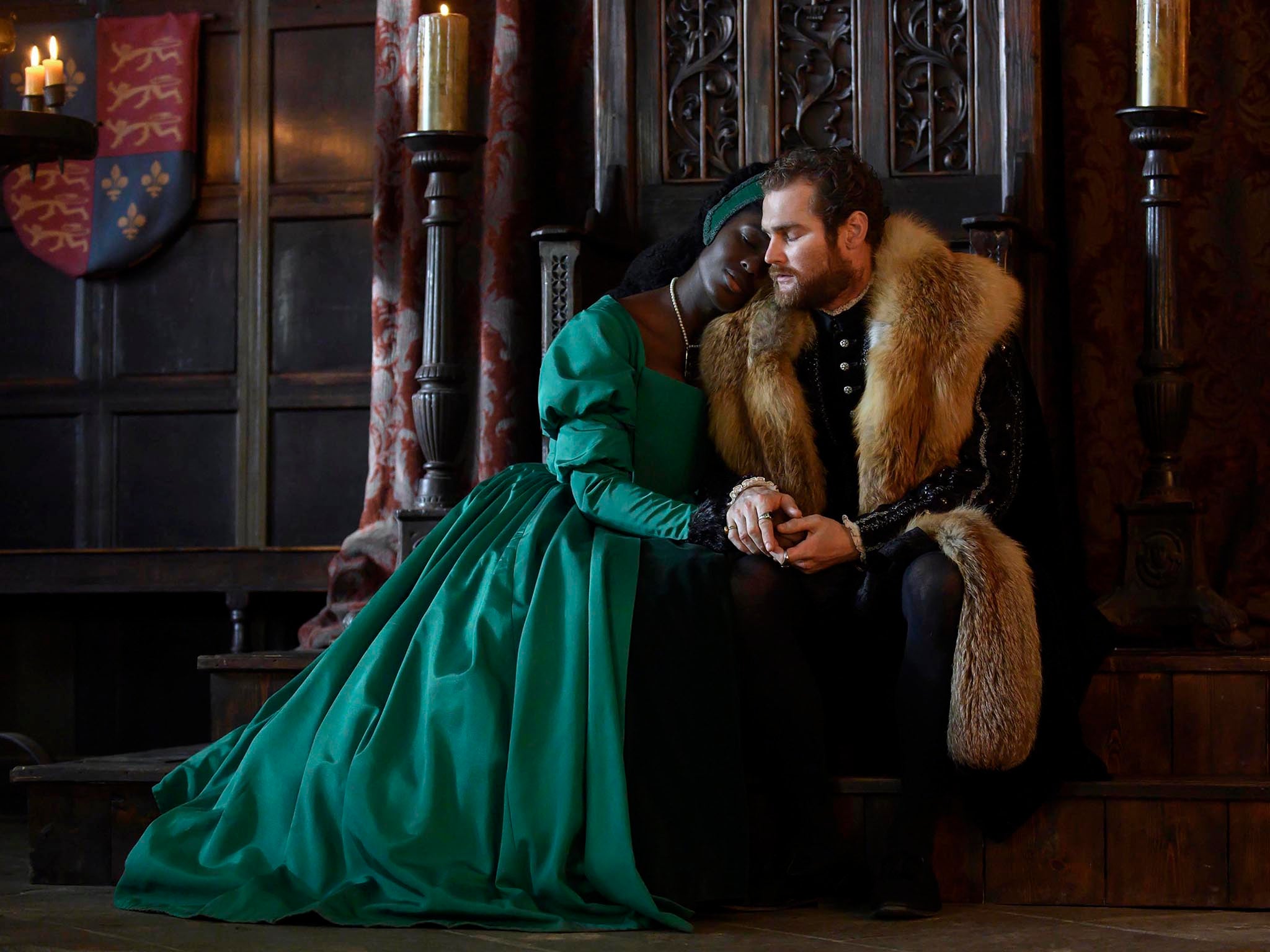
Turner-Smith’s mesmerising portrayal of a woman fighting for the future of her daughter becomes central as we move from one episode to the next. This is a story of a woman in a male-dominated environment, who has learnt to plot to survive. It is also a subtle inquiry into the nature of the relationships between women in a world that allows only a few to thrive economically and socially while relegating them to specific roles. In the series we understand that Queen Anne used men and women to achieve her goals but these women end up betraying her to carve a space for themselves in a ruthless environment where access to privileges and the court are perilous endeavours.
Mastery of the political situation within and outside the court was essential to these women and any mistake could lead to death for themselves and their families. One could therefore applaud the intricate ways in which Turner-Smith manages to intrigue us, anger us at times, and ultimately moves us to the core. Beautifully shaped, the plot and dialogues give us a glimpse into the multi-layered dimensions of a monarch’s reign and more specifically the extraordinary life a woman and one of Henry VIII’s closest subjects. As Turner-Smith demonstrates, the queen may have been punished for dreaming above her station and deluded herself that she had become the king’s equal. This is a poignant story.
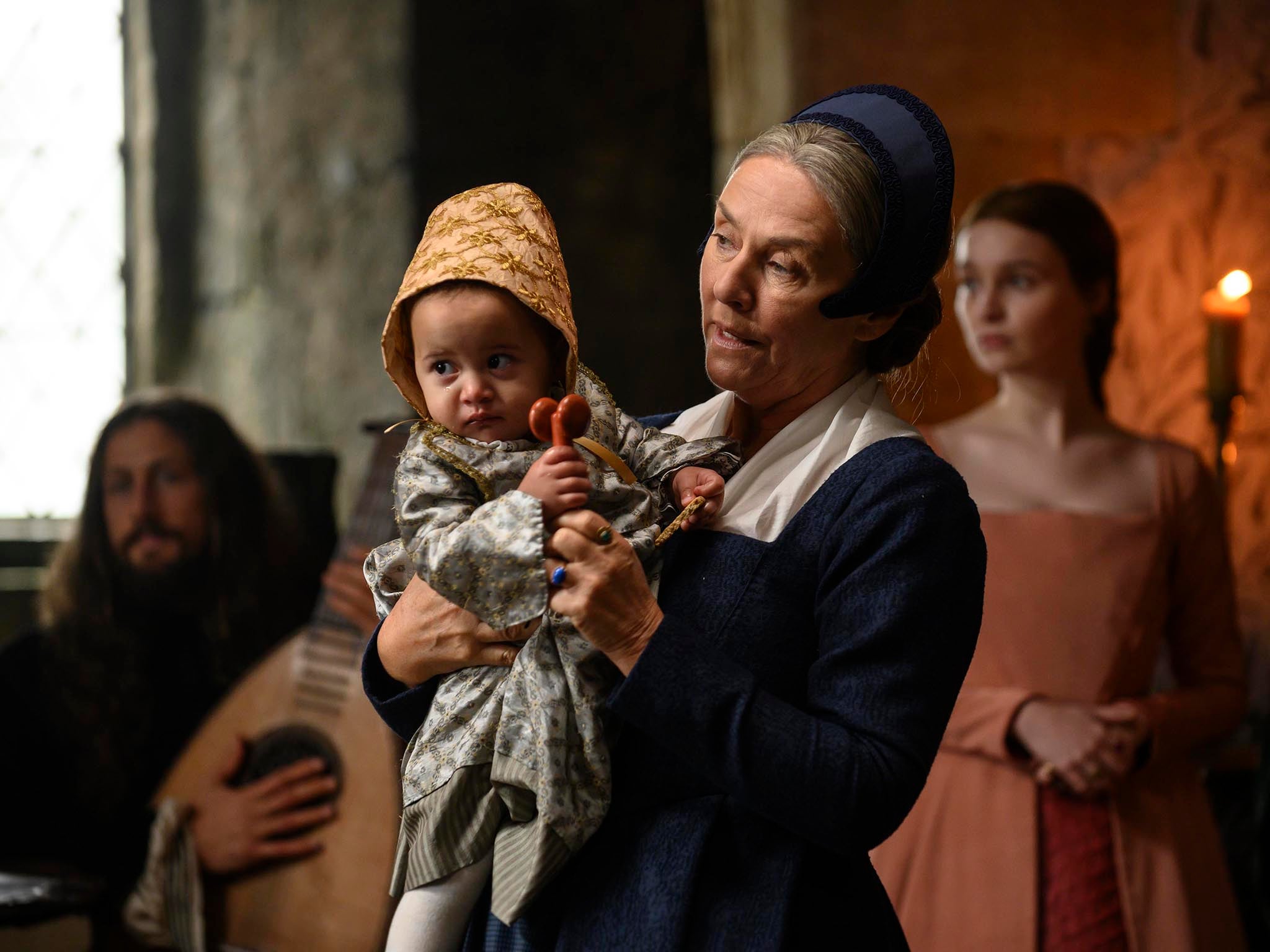
Another question one may ponder is the long lasting impact this series will have on our perceptions of period dramas, racism, gender history, motherhood, class and access to power. These are only some of the many themes that run through the series and that deserve to be explored because they resonate with contemporary debates. Two points are particularly salient from a personal point of view. The first is about women in positions of power and the way their achievements and intellect have been undermined by both male and female peers, collaborators and families. In the series, Queen Anne is denigrated by her husband and is constantly reminded of the precarious nature of her position, despite her astute reading of Thomas Cromwell, imperial ambassador Eustace Chapuys and other male characters’ political motives.
This leads me to reflect on the long history of women in positions of power, and in particular minority women subjugated to various forms of humiliation while being paradoxically celebrated as exceptional characters. The danger and isolation of exceptionalism are indeed relevant to us 21st-century women, especially when accompanied by ingrained racism and the threat of physical violence despite very public profiles as exemplified by the #MeToo movement. These cases have, however, drowned out the damaging and intersecting nature of racialised sexism, the exceptionalism of powerful minority women, or the hyper-invisibility of women voices, unheard because they are at the bottom of the social ladder.
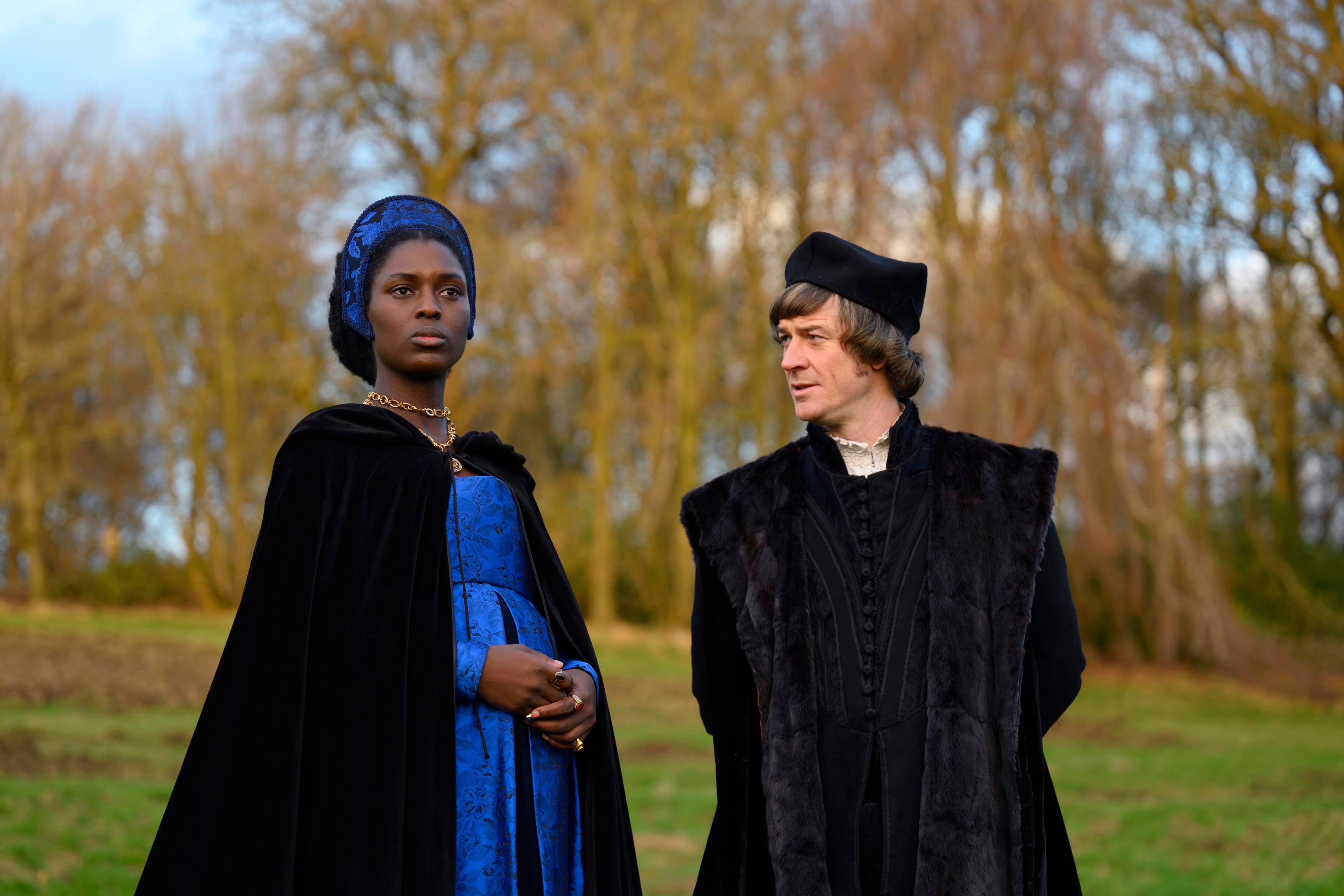
The second point is about diversity in the film industry. Every year, we see the Oscars in the US, the Baftas in the UK and the Césars in France plagued by controversies over the lack of diversity on screen and in particular the low number of lead roles played by black, Asian and minority ethnic women. Every year in Britain, we also see a high number of awards given to movies that are about Britain’s past. These two points appear to be mutually exclusive. Diversity is for any movie that is not about kings and queens it seems. Could Turner-Smith’s performance signal the beginning of a new era in which historical movies that have been the preserve of white actors are open to new representation on screen in modern Britain? The theatre arena has already crossed that line. Only time will tell.
It is likely that the public debate about this series will focus on Boleyn’s heritage rather than on Turner-Smith’s outstanding performance. White American and British actors have inhabited characters from all ethnic backgrounds for decades. I will welcome the uneasiness some may feel at seeing a black Boleyn. I would invite them to wonder how some are quick to accept deviation or inaccuracies in historical novels but reticent when it comes to the main character’s skin tone. Allowing oneself to feel these emotions then working on why one feels that way could be a step towards understanding what the cultural legacies of the past entail and how they continue to shape our identities.
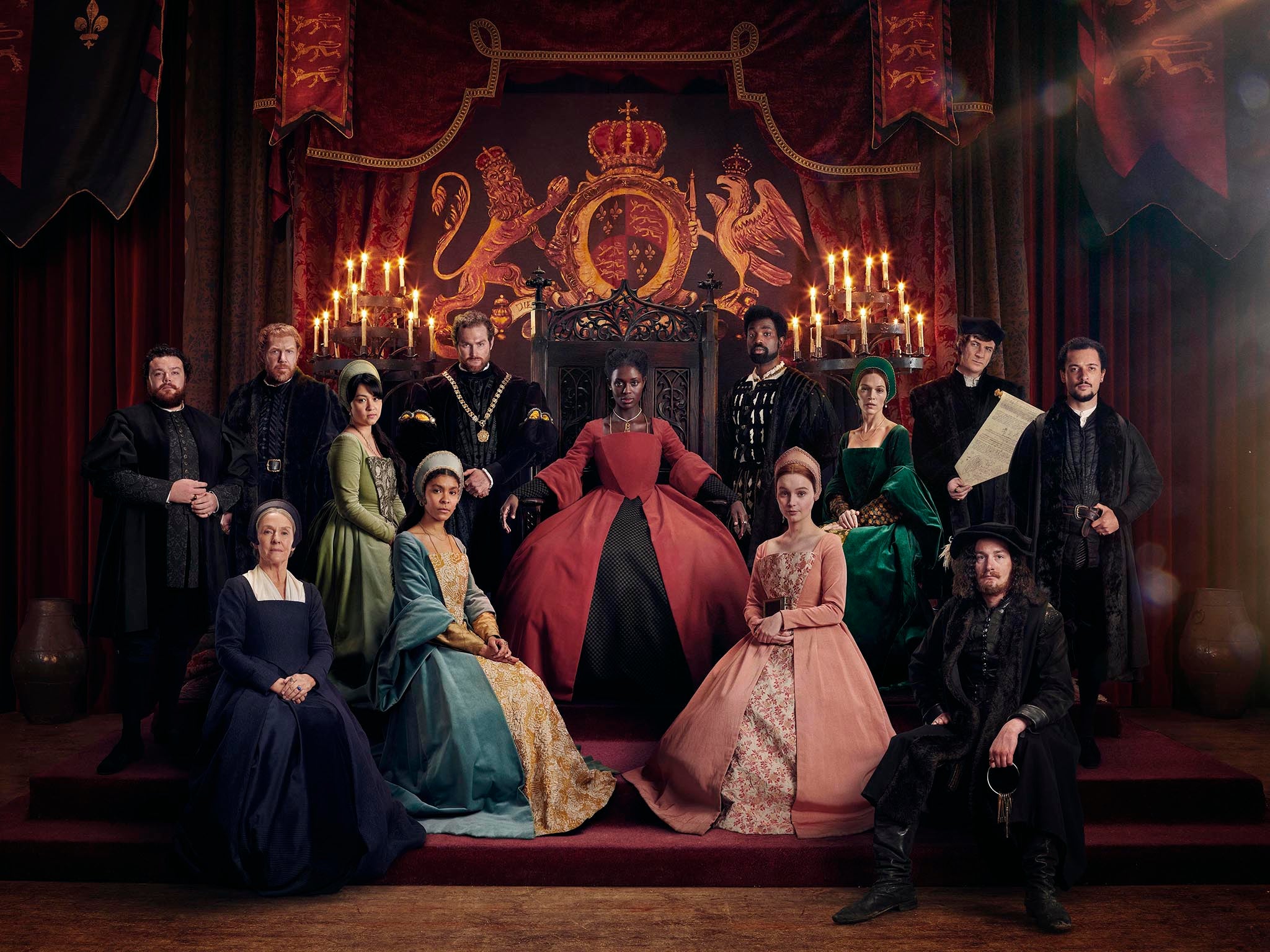
Beyond the discomfort and the interaction or even the debates this series will generate, what do these new representations mean for the British film industry? There are several answers to this question. As an 18th-century scholar, I have always been both fascinated and repulsed by the limitations of serialised versions of Jane Austen’s novels. The passing or lack of references to the sources of wealth of several families irked me. I wanted a period drama that brought people of African descent to the forefront. Bridgerton seemed to have answered that call but in a way that disturbed me. It was less about representation and more about the silence over the sources of wealth.
Beyond the discomfort and the interaction or even the debates this series will generate, what do these new representations mean for the British film industry?
The new series does not address any source of wealth but manages to bring us together over the question of the legacy of gender dynamics and racial stereotyping even when it comes to monarchs. The casting also demonstrates that Britain is ready to have several conversations about class, gender, race, the place of the monarchy in 21st century Britain – especially since the Duke and Duchess of Sussex move to the US – and even Brexit to some extent. Indeed, Boleyn spent her formative years in the Netherlands and in France and she was at the service of the Spanish-born queen and Henry VIII’s first wife, Catherine of Aragon. Boleyn was resolutely European and that transpires in the series as she is able to speak several languages. Her precarious position beside Henry VIII only echoes his own position as a monarch and the threat under which the English monarchy found itself centuries ago. These are issues that have contemporary resonance.
If we were to bring all these questions and themes together to understand the importance of this new series, the first point is that it breaks new grounds in terms of the intersecting themes of race, gender and class. It also challenges us to consider access to political power for women beyond voting rights. The second interesting point is the time frame. We are invited into the last moments of a monarch’s life and although we know the ending we are taken aback by the wealth of information and the breadth of questions that those last months raised. The role played by Cromwell in her demise is known to most historians but the series shed a new light on a less glorious history that is to do with Cromwell’s relation with Anne Boleyn.
The last important point is about the casting at this specific time in British history. Britain seems to be soul searching as is evidenced by public debates and newspaper articles about the British empire’s “glorious” or “inglorious” colonial past. The Tudor period has been considered in many ways to be a safe ground for such debates. It was allegedly a time when Britain did not have to worry about minorities. This series may be seen as destroying the last safe space for those nostalgic of a certain kind of past. I, for one, welcome that opening. The past is only a safe space if it becomes a learning space open to all. It is indeed about the construction of narratives on identities as much it is about learning how to live together in the present. The casting of the series plays a crucial role in opening that door. The performances are measured, restrained even, unaided by the overflow of costumes, music and the grandiosity of court life and multiple intrigues that we seem to favour and that we are used to having when it comes to Regency or Tudor period drama series. The story is carried out by a strong scenario, subtle dialogues and outstanding performances from the cast.
Olivette Otele is a professor of the history of slavery and memory of enslavement at the University of Bristol, vice president of the Royal Historical Society, and author of ‘African Europeans: An Untold History’ (Hurst, 2020)
Join our commenting forum
Join thought-provoking conversations, follow other Independent readers and see their replies
Comments